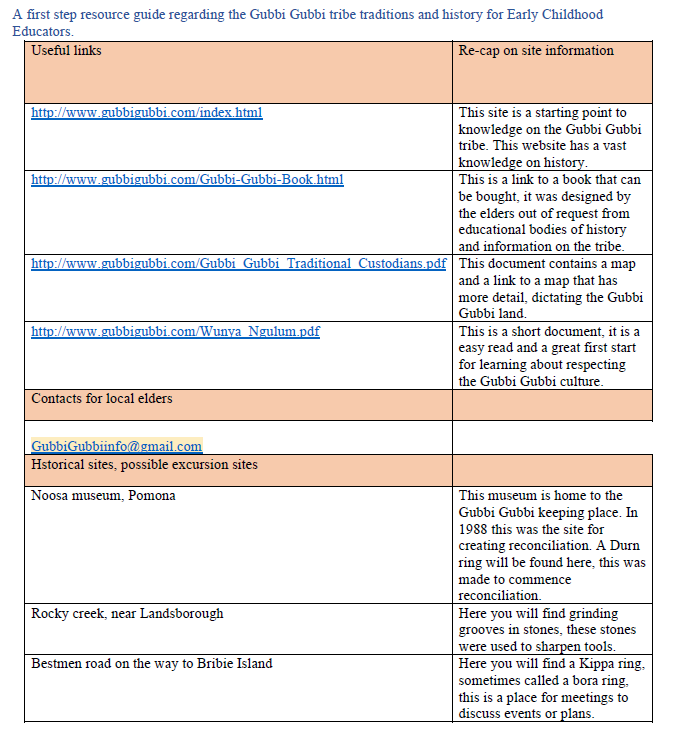14 First steps to community knowledge
Stefanie Kennedy
Rationale
The resource has been created with Reconciliation in mind. The resource can be used as a starting point for educators who struggle connecting with the local Aboriginal tribe in the Morayfield area. It can often be a daunting and difficult task for educators to source content that is meaningful and respectful to the local Aboriginal tribe. This guide has links to various sources that were developed by the Gubbi Gubbi elders. These sites can be used as a building block for educators to develop their own knowledge on the history and customs of the local tribe. The book that is available in the link is a further resource for centres to purchase for their educators to aid in developing deeper understandings. Understanding the tribal customs and history allows educators to create their own lessons suited for the children in their group. As a quick reference, there are also three sites of significance to the Gubbi Gubbi people that can be visited by both educators and children.
The Reconciliation Action Plan for Early Childhood Australia states. ‘There is so much to gain from teaching young children about Aboriginal and Torres Strait Islander cultures and heritages.’ (Early Childhood Australia, 2019). It not only gives children a rich understanding of the land they live on but it creates a sense of belonging in the childcare community, developing Learning outcome 2.1: Children develop a sense of belonging to groups and communities and an understanding of the reciprocal rights and responsibilities necessary for active community participation (DEEWR, 2009). Educators are encouraged to do this by building connections between the early childhood setting and the local community (DEEWR, 2009). Early childhood educators are required under the National Quality Standards (NQS) 6.2 to create ‘Collaborative partnerships enhance children’s inclusion, learning and wellbeing. (ACECQA, 2020e) In conjunction with Element 6.2.3 Community engagement ‘The service builds relationships and engages with its community.’ (ACECQA, 2020e).


